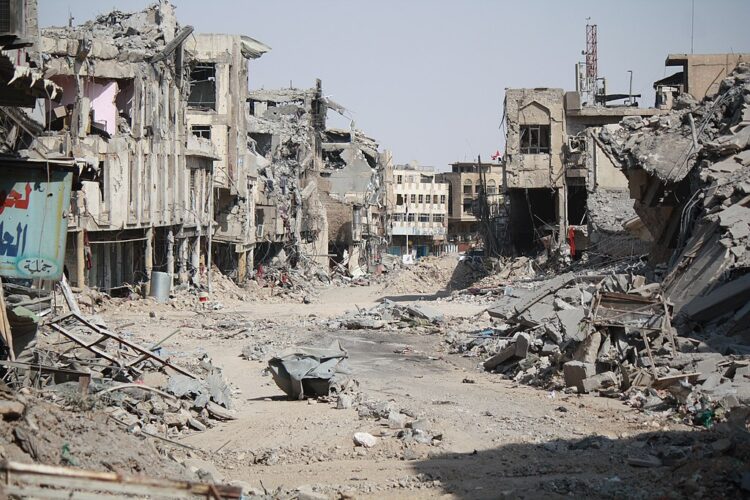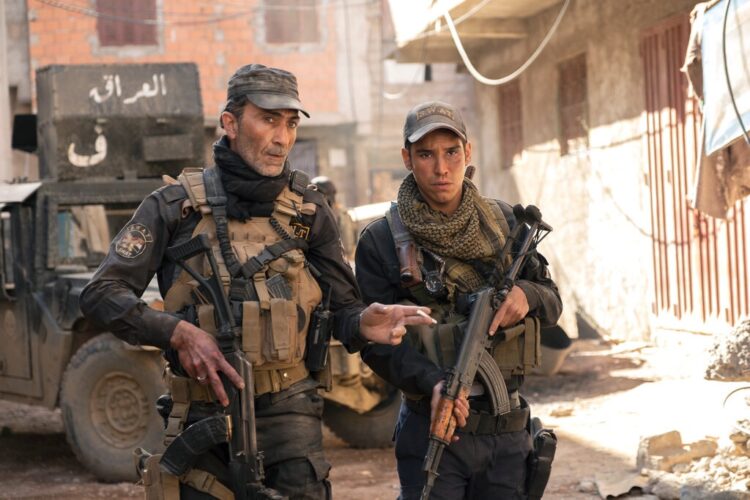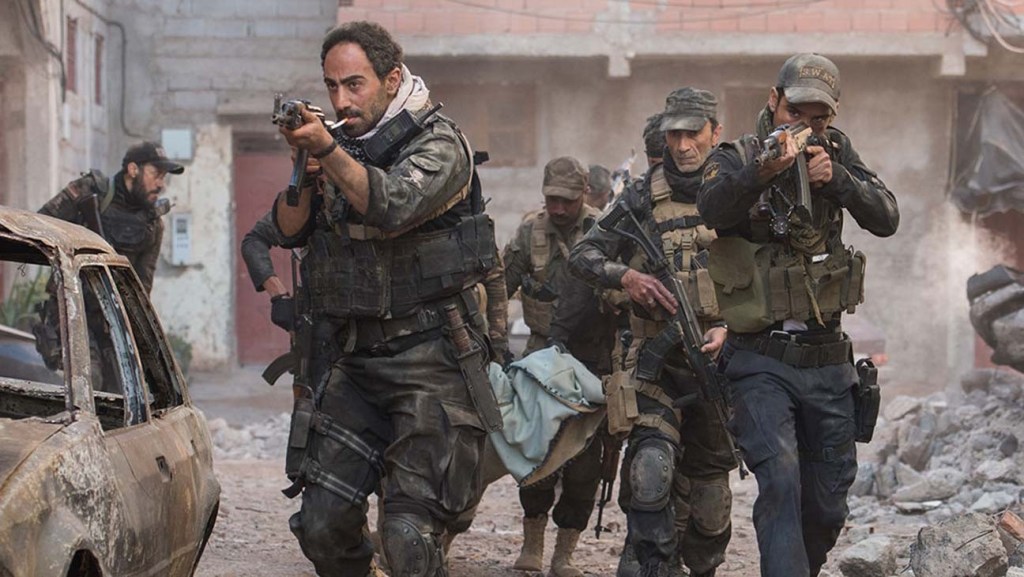Mosul, Iraq’s second largest city, was conquered by Islamic State in June 2014 and recaptured by Iraq in July 2017. Matthew Carnahan’s gritty war drama, Mosul, which is now available on Netflix, focuses on a small Iraqi police squad as it carries out a mopping-up operation on the eve of Mosul’s liberation.
He dedicates the film to the policemen who lost their lives battling Islamic State, which succeeded in creating a short-lived caliphate in Iraq and Syria.
Carnahan portrays Mosul as a city in ruins. Buildings have crumbled into heaps of concrete. The carcasses of cars sit abandoned on roads. The sound of gunfire is heard and explosions erupt. The streets are virtually empty. It is a bleak urban landscape of death, destruction, mayhem and despair.

In the first few minutes of the film, a fierce gun battle rages, pitting a few Iraqi policemen against Islamic State fighters. The combatants drop like flies. A police convoy passing by finishes off the remaining Islamic militants. The surviving policemen, including an intense young recruit named Kawa (Adam Bessa), whose uncle is killed in the shootout, join the convoy.
It is commanded by Major Jasem (Suhail Dabbach), a grizzled, no-nonsense veteran of the force who believes that Iraq can move on after Islamic State is defeated. As he says, “We can rebuild everything. We just have to kill them all first.”

Since their families have been directly affected by the fighting, the policemen are highly motivated, determined to administer Islamic State holdouts a crushing blow.
They pile into three armored vehicles, hoping to reach a safer part of Mosul without mishap. As they drive through a blasted neighborhood still largely controlled by Islamic State, they encounter resistance.
Hardly a moment passes without the heavy thud of violence. A car bomb explodes, sending shrapnel in all directions. Civilians trying to leave are shot dead by Islamic State operatives. En route to their destination, the policemen clear out an Islamic State pocket. As they rest, a drone suddenly appears, destroying one of their Humvees.
In another scene, Jasem barters cartons of cigarettes for ammunition and weapons. His interlocutor is an Iranian colonel who heads a Shi’a militia battling Islamic State. Much to Jasem’s annoyance, the colonel denigrates Iraq as a nation created by a European colonial power.
Carnahan ramps up the tension as Jasem and his men engage in backstreet battles and clash with the enemy in a warehouse. When Jasem finds pornographic magazines there, he’s disgusted. “Everything about them is empty,” he mutters, referring to Islamic State.

By sheer luck, one of the policemen finds his wife and young daughter in a grimy flat. He’s overjoyed to see them, but his spirits sink when he learns his wife was sexually abused.
Mosul, the first feature film to deal with that city’s three-year agony, is grim and hard-hitting. It pulls no punches. It takes you to a place where hardened men with high-powered guns kill each other randomly and where life is cheap.
